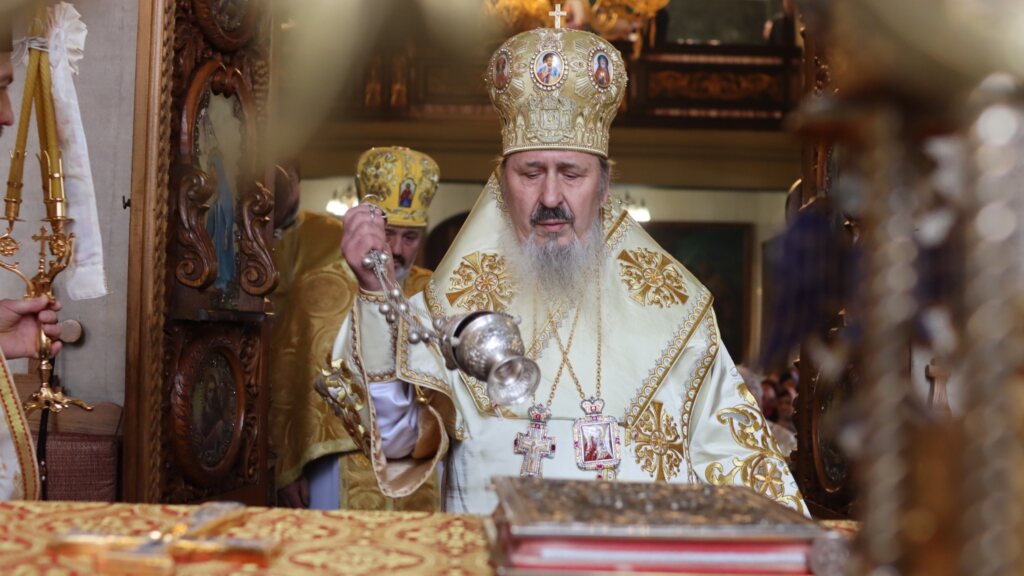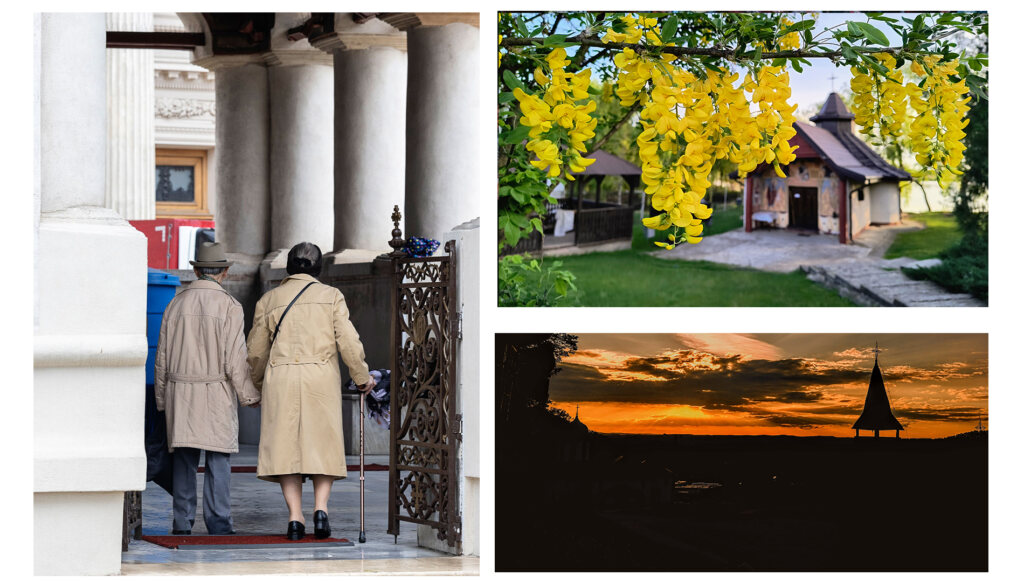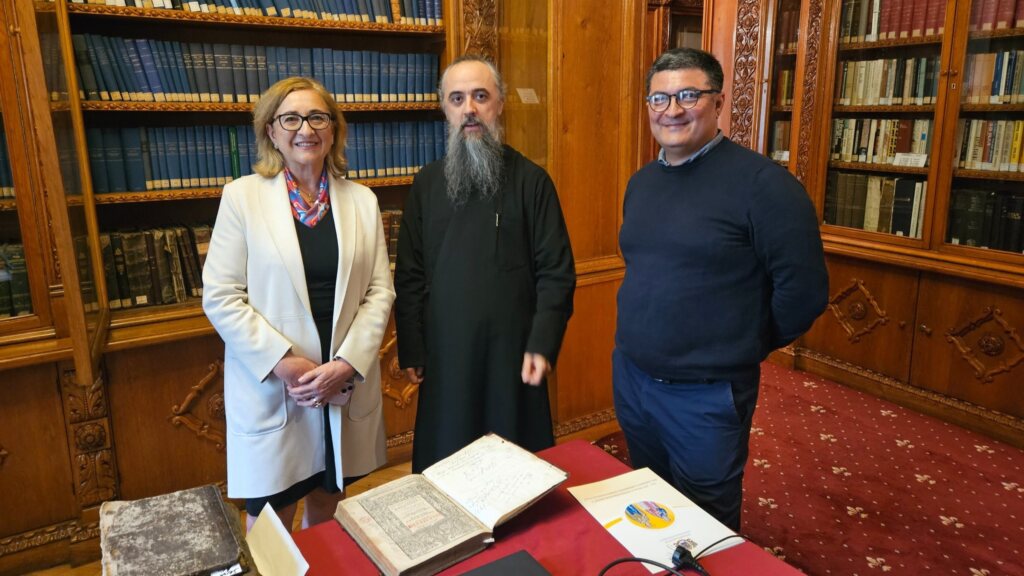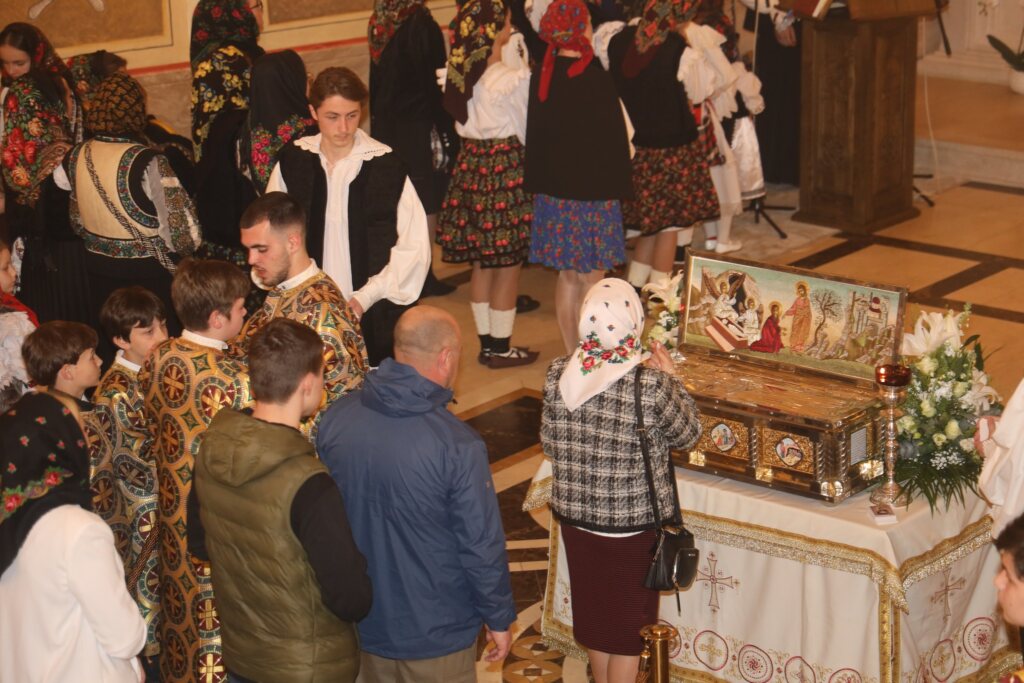‘Saint Helen is an example of an instructing mother,’ His Beatitude Patriarch Daniel stressed Monday on the feast of the Equal of the Apostles and Emperor Constantine with his Mother Helen, the protector saints of the Patriarchal Cathedral in Bucharest.
‘She instructed her son discreetly, but efficiently,’ the Patriarch said.
‘The Edict of Milan and all the works carried out by St Constantine for the profit of the Church were inspired by his mother, Empress Helen.’
Patriarch Daniel of Romania presided over the festive Divine Liturgy at the outdoor altar of the Patriarchal Cathedral having as concelebrants several hierarchs including Archbishop Calinic of Arges and Muscel, Bishop Visarion of Tulcea, Bp Varlaam of Ploiesti, Bp Ieronim of Sinaia, and Bp Timotei of Prahova.
In his sermon, the Romanian Patriarch reflected on the text of the Saints’ troparion referring to the calling of St Constantine to mission in a similar way as Apostle Paul became a missionary of the Church.
After his conversion, Emperor Constantine the Great became ‘the protector, defender, vouchsafer and helper of Christianity, and that is why he is called the apostle among rulers.’
First Roman Emperor to become a Christian
‘St Constantine the Great was called to help Christ’s Church after a long persecution period against Christians undertaken by pagan Roman rulers.’
‘He is the first Roman Emperor to become a Christian,’ the Patriarch noted.
His Beatitude pointed to St Constantine’s major contribution to the spreading of Christianity by issuing the Edict of Milan, which gave an end to Christian persecution.
‘Saint Constantine the Great gave the Church its fortunes confiscated during persecutions. He brought back from the exile all the priests and bishops. He gave the Church some public buildings, called basilicas, so that believers could have worship places.’
‘He did a reparation work, he repaid the damage done to Christians by the persecuting emperors before him,’ Patriarch Daniel said May 21.
His Beatitude reminded that St Constantine established Sunday as holiday in the Roman Empire, and all the laws given by the Emperor after his conversion were in accordance with Christian doctrine.
St Constantine the Great banned adultery, killing of babies, crucifixion, crushing of legs, and other tortures.
Unity of the Church
Patriarch Daniel went on to recall the efforts made by St Constantine to maintain the unity of the Church, the most important of which was the convening of the First Ecumenical Council.
“St. Constantine the Great wanted the unity of the empire, and if the Church was divided, the empire became divided. That is why he wanted to help the Church, to protect it from disunity, from quarrelling, from division, from disorder.”
Links with today’s Romania
Patriarch Daniel also spoke about the connection between St Constantine and Romania.
Constantine was born in the Roman city of Naissus in the Dacia Mediterranea province, which was very close to Dacia Felix, which was on the actual Romanian territory.
St Constantine reconquered the Romanian territory from the Goths with whom he concluded peace.
In order to have a closer connection with this territory, Constantine built a bridge over the Danube in Sucidava, today Corabia, and at the entrance on the bridge he placed a large stone cross.
This is considered the longest ancient bride over a watercourse and one of the longest bridges of all time (2, 437 m).
“St. Constantine sent missionaries in Banat and Wallachia for the Christianization of the Goths, who built many churches,” added His Beatitude Patriarch Daniel.
Name Day
Finally, the Patriarch reminded that there are many Romanians who bear the name of Sts Constantine and Helen and wished them “many years with health, joy and help from God to follow the example of their patron saints”.
His Beatitude said that this year we celebrate the 360th anniversary since the consecration of the Patriarchal Cathedral, one of the oldest places of worship in Romania dedicated to the Holy Emperors Constantine and Helen, founded by the Prince of Wallachia Constantin Şerban Basarab.
Photography courtesy of Mihnea Paduraru / ZL






